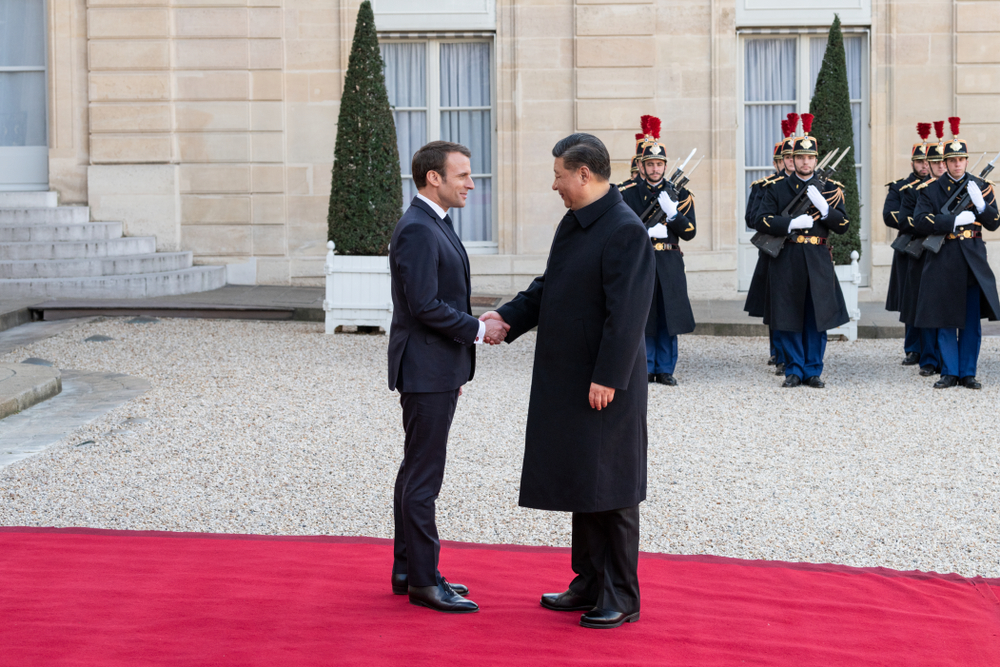France’s incoherent China policy confuses partners

On 21 July 2020, French Minister of Economy and Finance Bruno Le Maire participated remotely in the High Level Economic and Financial Dialogue with Chinese Vice Premier Hu Chunhua.

The two parties agreed to ‘encourage the businesses of each country to participate in the creation of 5G networks in line with market and security principles’.
It seems the French market plans to remain open to Huawei. The head of the French National Cybersecurity Agency Guillaume Poupard said as much when he confirmed the next day that there would be no blanket ban on Huawei equipment in the French 5G network.
But the devil is in the details. Authorisations for vendors to use Huawei equipment for 5G are granted for between three and eight years, without guarantee of renewal. As new mobile technology like 5G takes at least eight years to yield return on investment, no vendor would take the gamble. In other words, France is imposing a de facto ban on Huawei. National security considerations no doubt account for this choice — Poupard acknowledged the risk is not the same with European suppliers like Nokia and Ericsson.
This means French networks will be free of Huawei gear by 2028 at the latest. The French approach contrasts starkly with that of the United Kingdom, which outright banned new Huawei 5G equipment on 14 July with much fanfare, and ordered the removal of the existing Huawei 5G kit from operators’ networks by 2027.
The Huawei example can be seen as a testament of French President Emmanuel Macron’s conviction that actions speak louder than words. Earlier this year he declared that the time had come to behave less naively and to stop China from imposing its will, and he aims to talk softly and act tough.
The French government is fully aware that it cannot afford to antagonise bilateral relations. Cooperation is needed to effectively respond to key global issues of importance to France, such as the Paris Agreement, but it also wants to defend other interests and values. As a result, there has been a constant oscillation over the past two years between conciliatory tones and firm positions in defence of France’s national interest and economic security.
Despite few declarations, France firmly upholds the principle of freedom of navigation in the South China Sea, where the French Navy conducts regular exercises, and in the Taiwan Strait, through which a French warship passed in April 2019, much to Beijing’s ire. And while France reiterates adherence to the ‘one-China policy’, it did not hesitate to dismiss Chinese warnings about selling arms to Taiwan in July.
This ambivalence can be interpreted as another example of the en même temps (‘and at the same time’) doctrine that has become Macron’s trademark. During the 2017 presidential campaign, Macron was teased as the candidate of ‘en même temps’, his pet phrase in debates and interviews, suggesting that conflicting views could be carried simultaneously.
The full article is available online on the East Asia Forum website.

Available in:
Regions and themes
Share
Related centers and programs
Discover our other research centers and programsFind out more
Discover all our analyses
China’s Strategy Toward Pacific Island countries: Countering Taiwan and Western Influence
Over the past decade, China has deployed a diplomatic strategy toward the Pacific Island Countries (PICs). This strategy pursues two main objectives: countering Taiwan's diplomatic influence in the region and countering the influence of liberal democracies in what Beijing refers to as the "Global South."

Opening up the G7 to South Korea to Address Contemporary Global Challenges
The G7’s global influence has diminished as powers like China reshape international governance through initiatives such as BRICS and the Shanghai Cooperation Organisation (SCO). With the G7 now representing just 10 per cent of the world’s population and 28 per cent of global GDP, its relevance is increasingly questioned.
Expanding SPDMM as a pivotal institution in the Pacific – A French perspective
The South Pacific Defence Ministers’ Meeting (SPDMM) is the only forum that brings together defense ministers from the wider South Pacific — including Chile, which is hosting it for the first time. This heterogeneous group of countries with varying resources, capacities, and interests — Australia, Chile, Fiji, France, New Zealand, Papua New Guinea (PNG), and Tonga — are united by their shared determination to strengthen cooperation on maritime security and humanitarian assistance and disaster relief (HADR) activities.
EU’s Derisking From China: A Daunting Task
With economic security as a major concern, the EU has recently turned to “derisking” from China. The EU strategy entails reducing critical dependencies and vulnerabilities, including in EU supply chains, and diversifying where necessary, while recognizing the importance and need to maintain open channels of communication.










